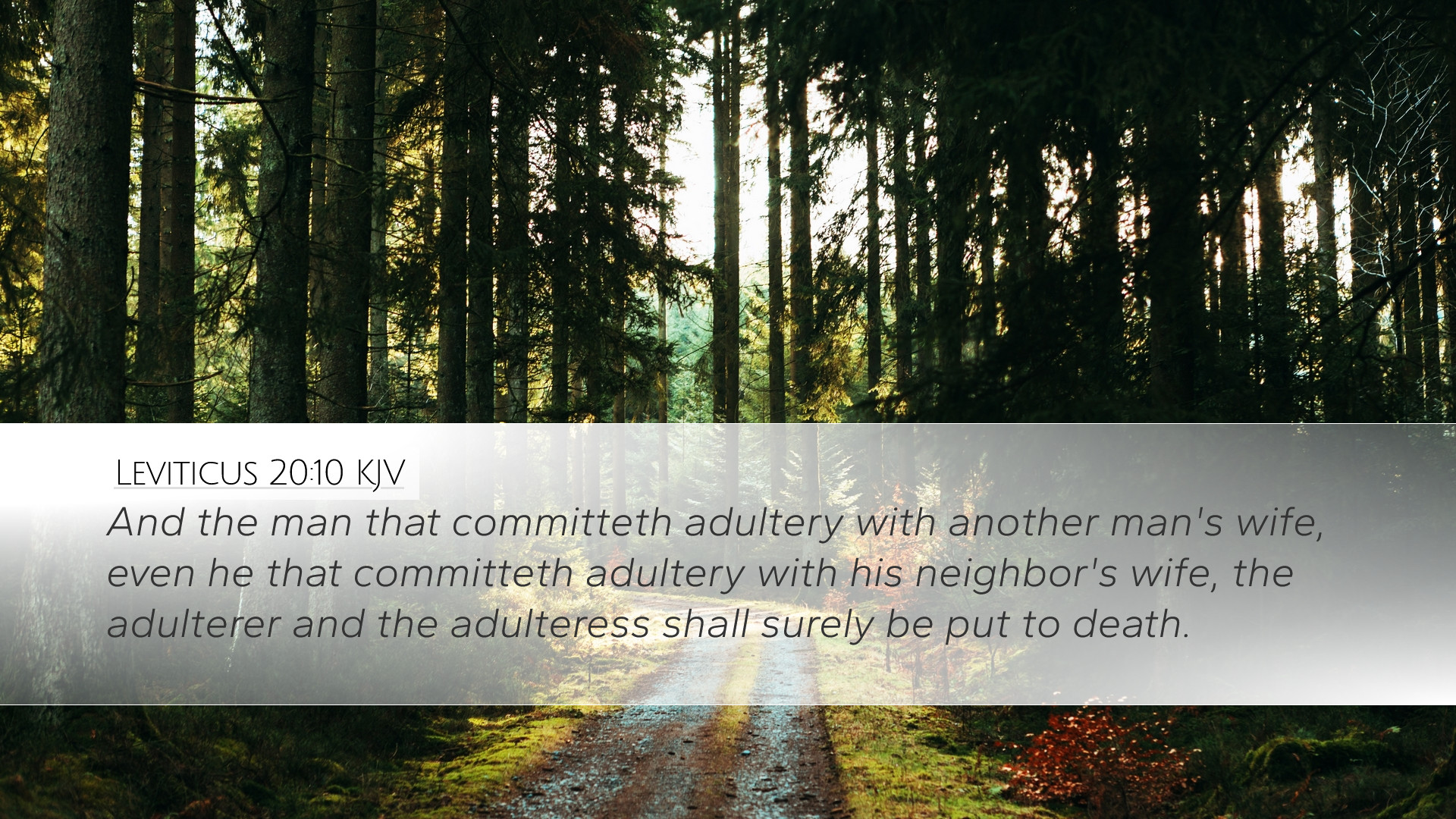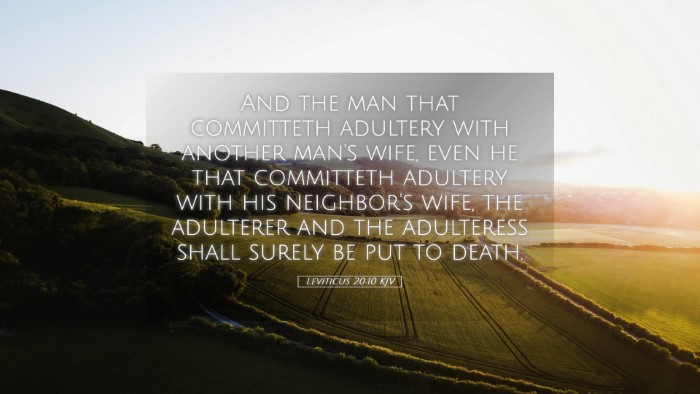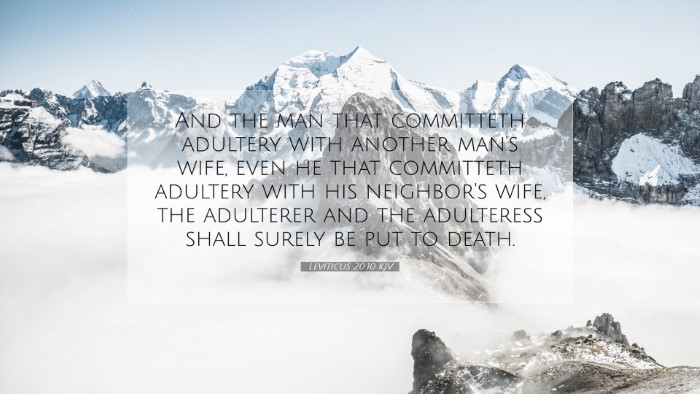Commentary on Leviticus 20:10
Bible Verse: “And the man that committeth adultery with another man’s wife, even he that committeth adultery with his neighbour’s wife, the adulterer and the adulteress shall surely be put to death.”
Introduction
The verse in Leviticus 20:10 serves as a stern reminder of the seriousness with which marital fidelity is to be regarded within the community of Israel. This passage intersects multiple theological and social dimensions of ancient Israelite life, providing critical insights into the moral fabric of the society designed by God. The penalties prescribed are harsh by contemporary standards, but they emphasize the covenantal purity required from the people of God.
Historical Context
Understanding the context of this law requires a grasp of the ancient Near Eastern setting wherein marriage was profoundly important. Marriage served not only as a social contract but as a fundamental building block for family and community stability. Thus, the prohibition against adultery was not merely a moral injunction; it was vital for the preservation of familial lineage and social order.
Matthew Henry's Insights
As noted by Matthew Henry, the severity of the punishment for adultery signifies the gravity of this sin against both God and society. He emphasizes that adultery violates the sanctity of the marital covenant, breaking the trust not only between the couple involved but also in the wider community. Henry points out that the nature of the sin requires a stern response, illustrating the covenantal boundaries that God sets forth.
Albert Barnes' Commentary
Albert Barnes elaborates on the intention behind this law as a means of preserving purity and fidelity within marriage. He contextualizes the punishment within the covenant relationship that Israel had with God, suggesting that such laws were instituted to maintain an unblemished community before the Lord. Barnes highlights how this law reflects God's concern for both individual and communal holiness, stressing the unequivocal value placed on the marriage institution.
Adam Clarke's Perspective
Adam Clarke provides a more in-depth exploration of the implications of this judgment. He notes that the Hebrew community was expected to uphold certain moral standards reflective of divine character. Clarke explains that the public execution of those who committed adultery served not only to punish the individuals but also to act as a deterrent for others. The call to righteousness is constantly reiterated, and the consequences of failing to adhere to these standards carry severe ramifications for the entire community.
Theological Implications
In understanding Leviticus 20:10, one must consider its theological ramifications. The passage elucidates God's attributes of holiness and justice. God desires His people to mirror His holiness, and marital fidelity is a reflection of this divine attribute. Through the lens of the New Testament, while the civil and ceremonial laws may differ, the moral imperatives remain consistent. Jesus reinforces the importance of fidelity, even extending the call to purity of thought in the Sermon on the Mount (Matthew 5:27-28).
Application for Modern Audience
This verse, while set in a specific ancient context, has enduring implications for today's believers. Adultery continues to be a significant issue within contemporary society, oftentimes trivialized despite its destructive consequences. Pastors and church leaders must communicate the need for sexual purity and faithfulness, not only as a matter of obedience but as a means of reflecting God’s character and furthering the gospel's witness.
Conclusion
Leviticus 20:10 stands as a testament to God's righteous standards for His people. The combination of insights from Matthew Henry, Albert Barnes, and Adam Clarke creates a robust understanding of the gravity of adultery and the serious consequences it invites. The call to fidelity is timeless, echoing through the ages, urging the church today to uphold the sanctity of marriage, fostering communities that honor God’s design for human relationships.


